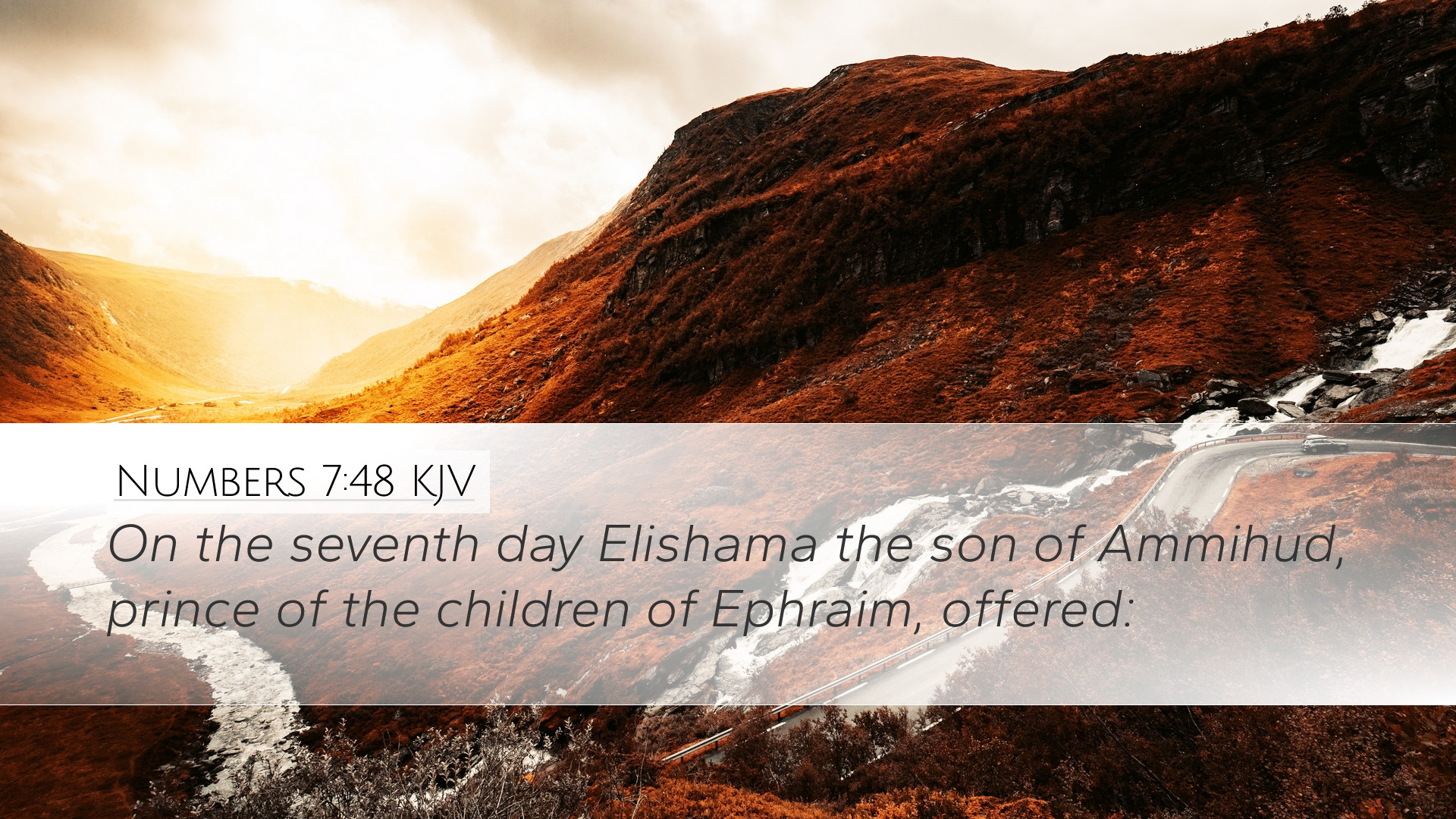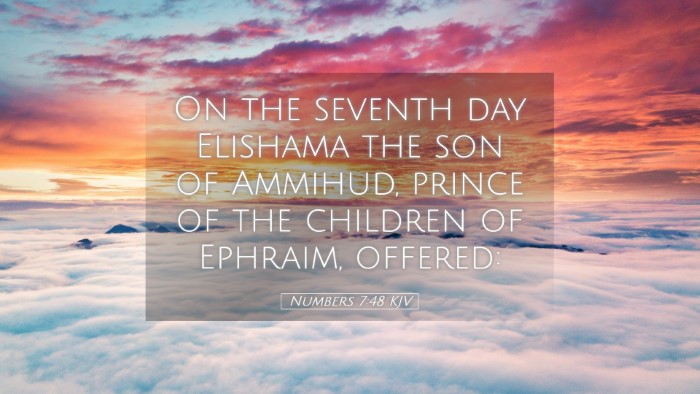Commentary on Numbers 7:48
Verse: "On the seventh day he offered a sacrifice for the altar: he anointed it, and sanctified it."
Introduction
Numbers 7:48 presents an important moment in the ritual consecration of the altar. This act signifies not only the completion of the tabernacle's dedication but also instills a profound understanding of the significance of sacrificial offerings, purification, and the holiness of God’s dwelling among His people. In this commentary, we draw insights from renowned public domain commentaries to elucidate the spiritual and theological implications of this verse.
Contextual Analysis
In the broader context of Numbers 7, the chapter outlines the offerings brought by the tribal leaders during the dedication of the altar. Each leader presented their gifts to the Lord, symbolizing their commitment to God's covenant and service. The repetitiveness of the offerings underscores the importance of community in worship and the acknowledgment of God's provision and presence.
Significance of the Seventh Day
The mention of the seventh day is of particular importance. Many commentaries, including that of Albert Barnes, explain that the seventh day represents completion and divine rest. This parallels the creation account in Genesis, where God completed His work on the seventh day. Thus, the offering on this day symbolizes the fulfillment of God’s promises and the establishment of His covenant with Israel.
Ritual and Consecration
As noted by Matthew Henry, the operation of anointing and sanctifying the altar is crucial for understanding the theology of consecration. The anointing signifies an empowerment by God's Spirit for the purpose of divine service. The act of sanctification points to setting apart the altar for holy use, distinguishing it from any ordinary object. This highlights God's requirement for holiness in worship and the necessity of purification.
Theological Implications
The implications of Numbers 7:48 extend beyond the ritualistic elements; they resonate with core theological themes central to Christianity. The altar becomes a symbol of atonement, foreshadowing the ultimate sacrifice of Christ. Adam Clarke emphasizes that the priestly actions in these ceremonies provide a prefiguration of the sacrificial system culminating in the New Testament's portrayal of Jesus as the fulfillment of the law—and the ultimate Lamb for our sins.
- Altar as a Symbol of Sacrifice: The altar represents the meeting place between God and humanity. The sacrifices offered are not mere formalities; they signify a deeper relationship built on reciprocity—God giving His presence, and the people responding with faith and obedience.
- Holiness of God: The ritual signifies that God's holiness demands a response of holiness from His people. Sanctioning the altar sets a standard for worship that must be adhered to, reflecting on the nature of God’s covenant faithfulness.
Application for Today
Pastors and theologians can glean valuable lessons from Numbers 7:48 regarding the nature of worship and its transformative power in the lives of believers. The anointing of the altar serves as a reminder of our call to consecrate our lives and dedicate our service to God.
Key Points for Reflection:
- Corporate Worship: The communal dimension of the offerings presents a model for today’s church, emphasizing unity and collective worship as vital to spiritual growth and effectiveness in ministry.
- Personal Consecration: Believers are called to present themselves as living sacrifices, holy and acceptable unto God (Romans 12:1). Personal anointing and sanctification reflect a life dedicated to God’s service.
- Acknowledgment of God’s Presence: Understanding that every act of worship is a response to God’s presence encourages a deeper appreciation for the sacred nature of gathering as a body of believers.
Conclusion
The offering made on the seventh day in Numbers 7:48 encapsulates significant theological themes of sacrifice, holiness, and covenant. Through the insights of ancient commentators, we see the richness of this text and its implications for worship today. It calls believers to reflect on their own lives in the light of divine holiness, to pursue congregational unity, and to recognize the empowering presence of God in their sacrificial service.


